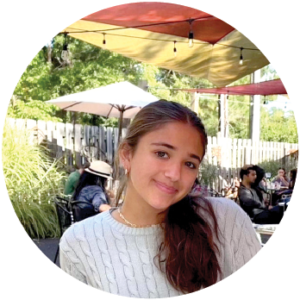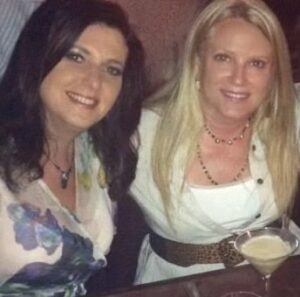 Way back in 2008, I was in the middle of writing a memoir about my struggle with bipolar disorder. I also began writing humorous essays about my observations on life. I submitted one of them to Grace of Inside Chappaqua magazine. My essay, ‘The Creation of a Radical Baseball Evolutionist,’ was my first published piece.
Way back in 2008, I was in the middle of writing a memoir about my struggle with bipolar disorder. I also began writing humorous essays about my observations on life. I submitted one of them to Grace of Inside Chappaqua magazine. My essay, ‘The Creation of a Radical Baseball Evolutionist,’ was my first published piece.
A little after that, Grace and I met for lunch. I must admit, I was a bit nervous to meet a publisher. It was a warm spring day, so we decided to meet at a local restaurant and sat outside. I didn’t know anything about Grace or editing or publishing. I arrived extra early and began to imagine who Grace was. Did she wear corporate pantsuits? Pencil skirts? Or dresses? Was she approachable? Conversational or reserved? What am I doing here??? I feel like a fraud! I’ve never published anything!!!
As my inner-voice began to spiral and play on my insecurities, I looked up and saw this curly-haired woman with a warm smile headed my way. She was dressed in a whimsical pastel floral skirt with a white tee. She looked a bit harried and apologized for being a whole five minutes late. She said she had a crazy morning. Grace spoke in a soft, casual tone that immediately made me feel comfortable. We talked about the start of her magazine, and I shared that I was writing a memoir on my struggle with bipolar disorder. She immediately was interested and asked me a bunch of questions, and said she’d love to read it when it came out. When it was published a year later, Grace reached out and said she read my book while sitting on a beach and wanted to assign one of her writers to interview me.
Over the past 15 years, Grace has been gracious enough to publish 16 of my articles. She has championed my cause and has given me a platform highlighting mental health. She has sent me on assignments to cover local events. She even gave me my first cover story. Grace was and still is open to reading anything I submit, including a few humorous essays. Although I’ve never experienced what it’s like to work with other editors or publishers, what I will say is that if you’re a writer, Grace is the kind of editor/publisher who allows a writer to write in their own voice. She is very much hands-off and respects the writer’s perspective and creativity. When she does interject, it’s usually more of gentle guidance on slight revisions and word count.
Over the years, not only do we share a professional relationship, but we’ve become good friends and confidants. Above all, Grace is a playful spirit, and it doesn’t hurt that she enjoys my warped sense of humor. I admire her independent spirit. She’ll go to movies and restaurants by herself and travel solo to far-away places. Once upon a time, though less so now, she’d even visit karaoke joints and sing, too.
What’s wonderful about our friendship is that we can go from sheer silliness to deep, meaningful conversations about what’s happening in each other’s lives. Grace shares her insecurities, her flaws, her mistakes. She’s not afraid to be vulnerable. When I say vulnerable, I mean in a good way–in a strong, brave way. So, when she asked me to write something for this 20th anniversary edition, I said only if I could write something on her. At first, she wasn’t sure, but I insisted she let me try, and, of course, she’s the one who could nix it.
So, if you’re reading this, it’s because Grace, once again, was open to being beautifully vulnerable. That truly is the grace in Grace.

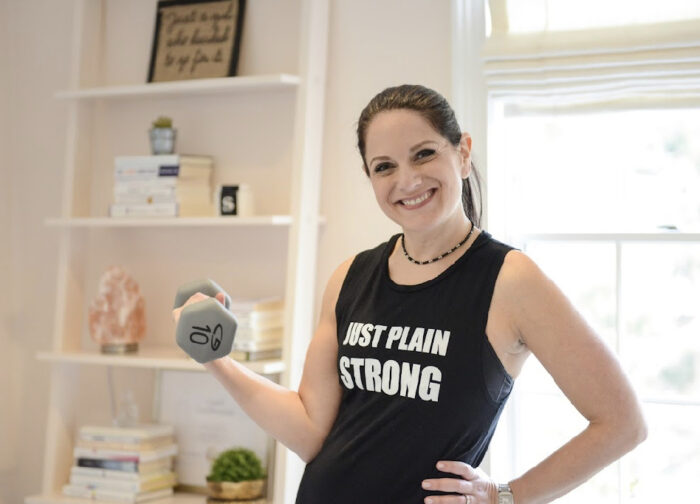
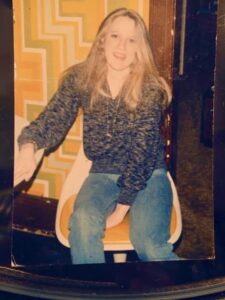 After you lose your mother, Mother’s Day becomes a somber day of reflection. Our mother is gone 21 years now. She died from lung cancer at the age of 56–a year younger than I am today. It was strange for me when I realized I’m older than my mother would ever be. Still, I reflexively reach for my phone to call her whenever something good or bad happens. Then, remind myself, with phone in hand, she’s not on the other end.
After you lose your mother, Mother’s Day becomes a somber day of reflection. Our mother is gone 21 years now. She died from lung cancer at the age of 56–a year younger than I am today. It was strange for me when I realized I’m older than my mother would ever be. Still, I reflexively reach for my phone to call her whenever something good or bad happens. Then, remind myself, with phone in hand, she’s not on the other end.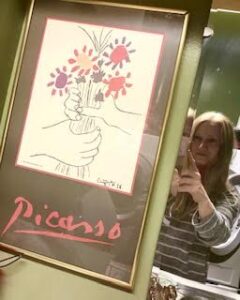 Our kitchen table was the roundtable of our world. Under the watchful eye of The Bouquet of Peace, it’s where our single bra-burning, bellbottom-wearing, liberal-leaning mother created a safe space for her three girls to talk about anything and everything. Nothing was off-limits. It’s where she celebrated our rite of passage into womanhood, and, subsequently, where we complained about our cramps and pimples. It’s where we learned to put on makeup. It’s where we cried over boys. It’s where we talked about our mother’s limited paycheck and how, if we wanted a new pair of Jordache jeans or a new pair of Candies, we had to work for it.
Our kitchen table was the roundtable of our world. Under the watchful eye of The Bouquet of Peace, it’s where our single bra-burning, bellbottom-wearing, liberal-leaning mother created a safe space for her three girls to talk about anything and everything. Nothing was off-limits. It’s where she celebrated our rite of passage into womanhood, and, subsequently, where we complained about our cramps and pimples. It’s where we learned to put on makeup. It’s where we cried over boys. It’s where we talked about our mother’s limited paycheck and how, if we wanted a new pair of Jordache jeans or a new pair of Candies, we had to work for it.